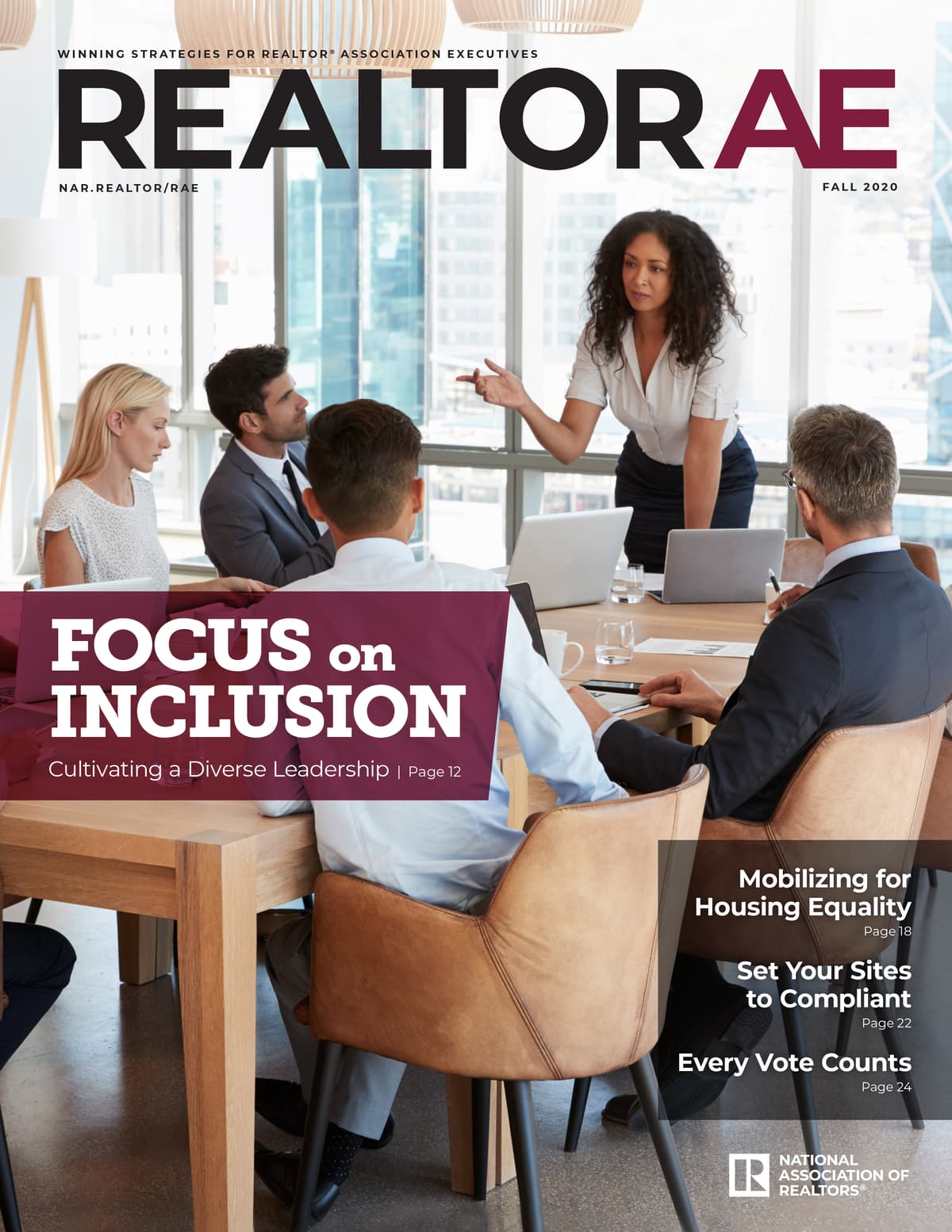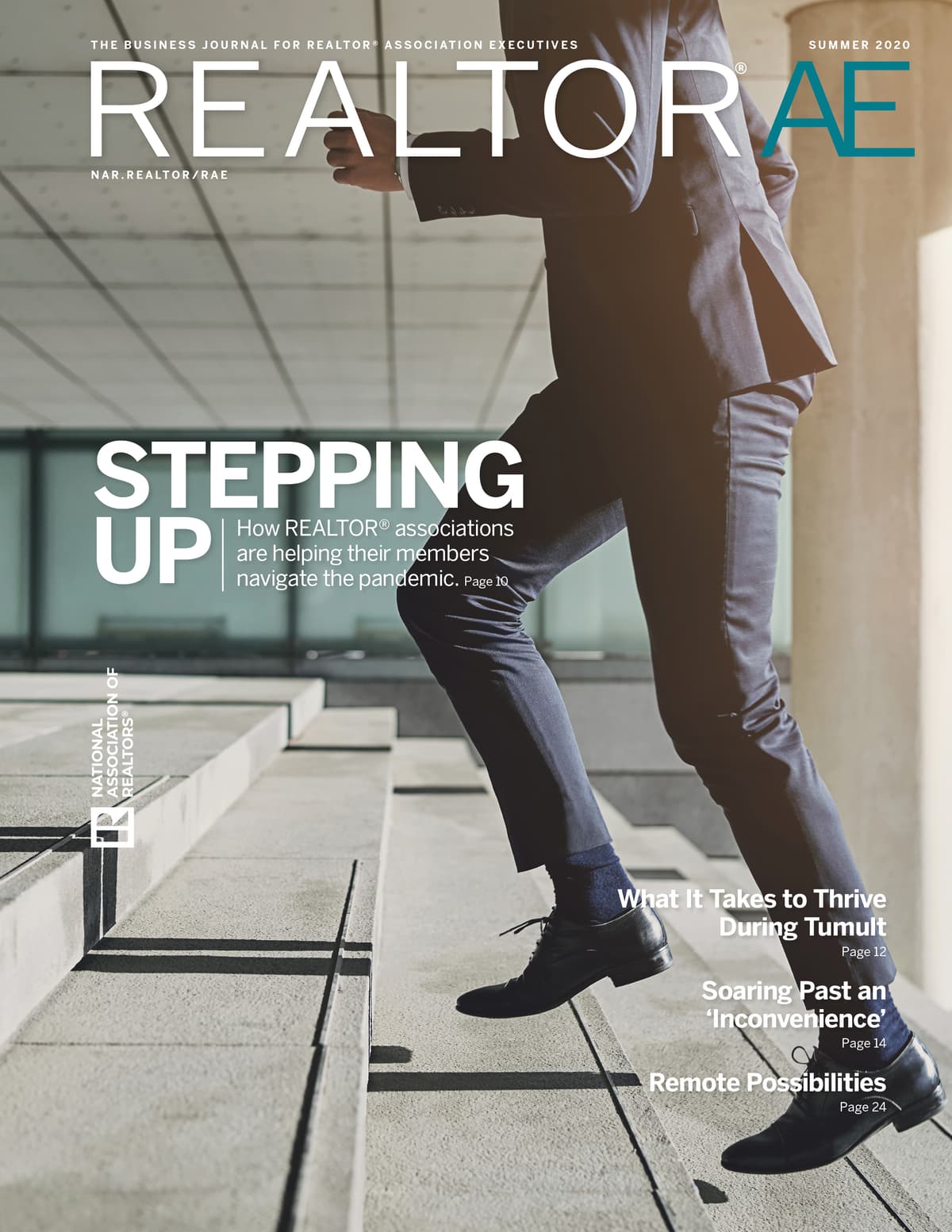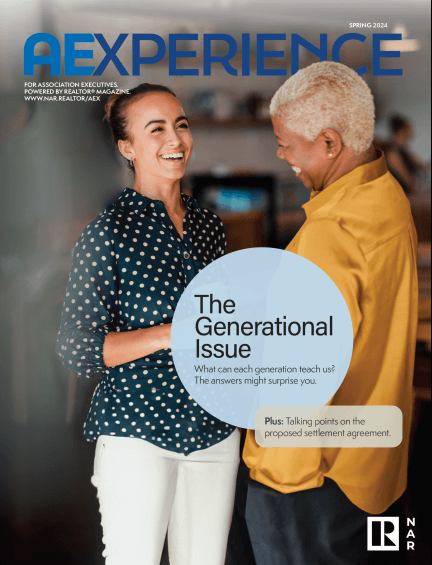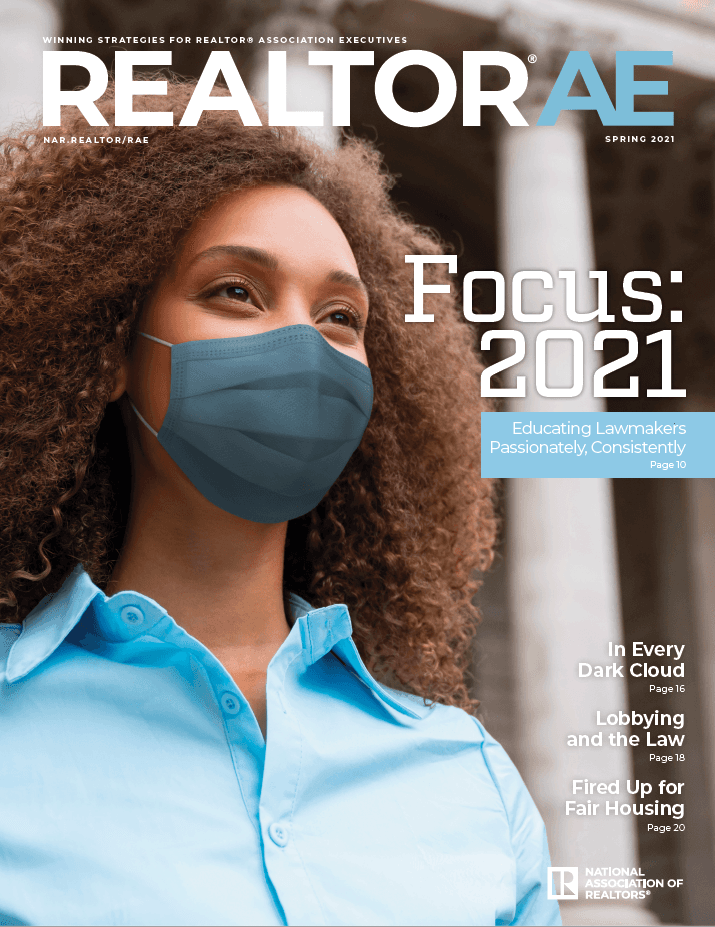AExperience - All Past Issues
Issue archive for AExperience and REALTOR® AE Magazine, formerly published quarterly by the National Association of REALTORS®.
Advertisement
Search AExperience
AdvertisementOther AExperience - All Past Issues Issues

Winter 2021: Tech Tools
February 8, 2021

Fall 2020: Focus on Inclusion
October 23, 2020

Summer 2020: Stepping Up
August 6, 2020

Spring 2020: Reach More Members With Video
May 10, 2020

Summer, 2025: Consumer Education Done Right
September 10, 2025

Spring, 2025: Lifelong Learning
May 12, 2025

Winter, 2025: Get Your Messaging Right
February 14, 2025

Fall, 2024: Fast Forward
October 21, 2024

Summer, 2024: Max Out Member Value
July 31, 2024

Spring, 2024: The Generational Issue
April 15, 2024

Winter, 2024: Get Inspired
February 8, 2024

Fall, 2023: Bringing Office Culture Back
October 25, 2023

Summer, 2023: Why Professional Designations Matter
August 1, 2023

Spring, 2023: Find Your Happy Place
April 26, 2023

Fall, 2022: Destination: Diversity
October 26, 2022

Summer 2022: Building in Sustainability
August 25, 2022

Winter 2022: The New Normal Is Hybrid
February 9, 2022

Fall 2021: We "R" Everywhere
October 28, 2021

Summer 2021: The Relationship Issue
August 3, 2021

Spring: Focus: 2021
May 3, 2021

Winter 2021: Tech Tools
February 8, 2021

Fall 2020: Focus on Inclusion
October 23, 2020

Summer 2020: Stepping Up
August 6, 2020

Spring 2020: Reach More Members With Video
May 10, 2020

Summer, 2025: Consumer Education Done Right
September 10, 2025

Spring, 2025: Lifelong Learning
May 12, 2025

Winter, 2025: Get Your Messaging Right
February 14, 2025

Fall, 2024: Fast Forward
October 21, 2024

Summer, 2024: Max Out Member Value
July 31, 2024

Spring, 2024: The Generational Issue
April 15, 2024

Winter, 2024: Get Inspired
February 8, 2024

Fall, 2023: Bringing Office Culture Back
October 25, 2023

Summer, 2023: Why Professional Designations Matter
August 1, 2023

Spring, 2023: Find Your Happy Place
April 26, 2023

Fall, 2022: Destination: Diversity
October 26, 2022

Summer 2022: Building in Sustainability
August 25, 2022

Winter 2022: The New Normal Is Hybrid
February 9, 2022

Fall 2021: We "R" Everywhere
October 28, 2021

Summer 2021: The Relationship Issue
August 3, 2021

Spring: Focus: 2021
May 3, 2021

Winter 2021: Tech Tools
February 8, 2021

Fall 2020: Focus on Inclusion
October 23, 2020

Summer 2020: Stepping Up
August 6, 2020

Spring 2020: Reach More Members With Video
May 10, 2020
Advertisement









